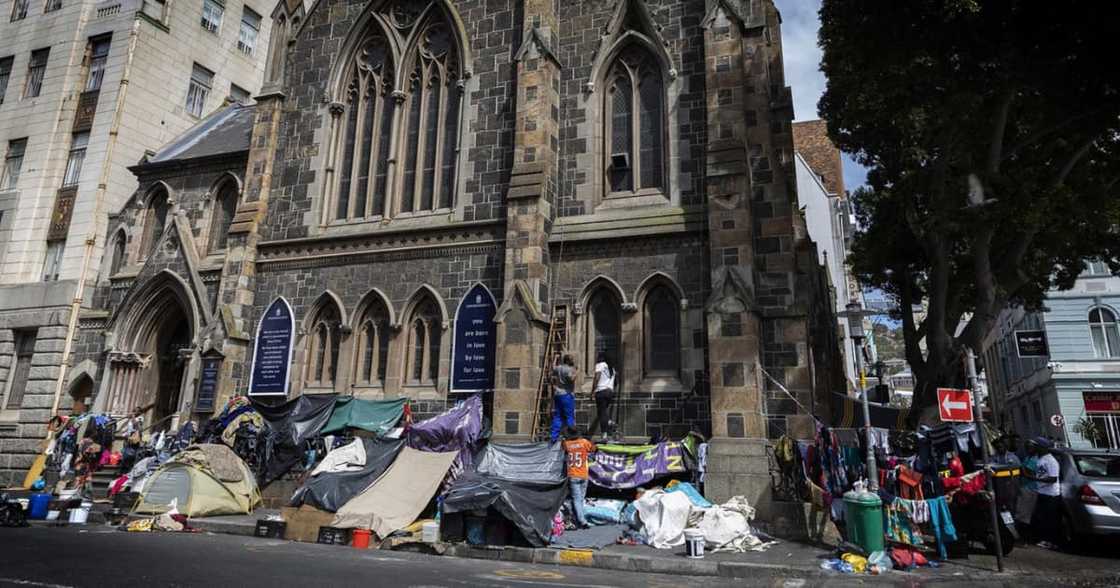Leaders of Protestors Who Demanded to Be Taken to Canada Deported
- A group of 41 protestors have been deported to the Democratic Republic of Congo
- Among them were the leaders of the group who had demanded that they be deported to Canada
- The incident was sparked off two years ago after a group refugees left their community following concerns over xenophobic attacks
PAY ATTENTION: Click “See First” under the “Following” tab to see Briefly.co.za News on your News Feed!
41 protestors are being deported according to Home Affairs Minister Aaron Motsoaledi. He revealed that among those being deported are the ringleaders of a group of protestors who demanded to be taken to Canada.
He said the ringleaders were deported because they did not meet the criteria for refugee status. A further 121 foreigners took up an offer proposed by the United Nations to be flown back to their home countries.

Source: Twitter
According to Radio 702, the protestors were deported to the Democratic Republic of Congo.
The protests took places two years ago and the foreign nationals were deported two weeks ago according to the Department of Home Affairs.
The protestors had initially left their communities in South Africa due to concerns over xenophobic violence. They had demanded to be resettled in foreign countries of their choice.
Canada was the group's main preference. The protestors had occupied the Central Methodist Church in Cape Town CBD in an attempt to have their demands met.
A smaller part of the group had set up camp in Greenmarket village resulting in clashes with city management.
583 people from the group who had applied for refugee status had their applications rejected according to the Sunday Times.
In other news, a fierce debate about xenophobia in South Africa has been sparked on Twitter. According to a few tweeps, many influencers were allegedly paid to promote the hashtag #SayNoToXeno. Although there is no substantial evidence to back this, many Saffas agree.
The suspicions of many who are against the hashtag are that influencers with a substantial number of followers are being paid to push it. Many are now trying to push the "#PutSouthAfricaFirst" and "#ForeignersLeaveSA" hashtags.
Xenophobia has been an issue within the country for many years with reports of foreign nationals facing terror and harm simply for not being South African.
In other important news, Briefly News recently reported on Herman Mashaba being furious over clips of illegal immigrants that surfaced online. Shepherd and Mary Bushiris' escape out of South Africa and back to Malawi has been dominating headlines this week.
In the wake of this news, citizens have been sharing clips of how foreign nationals illegally flood into South Africa through evidently porous borders. Shocking incidents where large groups of people are witnessed catching taxis to unknown destinations has invoked fury in many.
With the South African government seemingly finding it difficult to make ends meet and provide adequate healthcare and education to citizens, the idea of stretching these resources to accommodate those in the country illegally is far from appealing.
ActionSA leader Herman Mashaba has reacted to a clip allegedly of Zimbabwean nationals crossing into SA with anger:
"If you can carry a mattress over the border this easily, imagine how easy it is to carry drugs and counterfeit goods over the border. Our country is turning into a joke!"
Enjoyed reading our story? Download BRIEFLY's news app on Google Play now and stay up-to-date with major South African news!
Source: Briefly News



